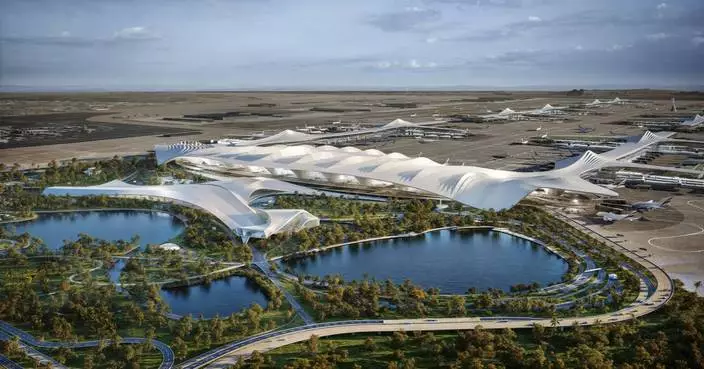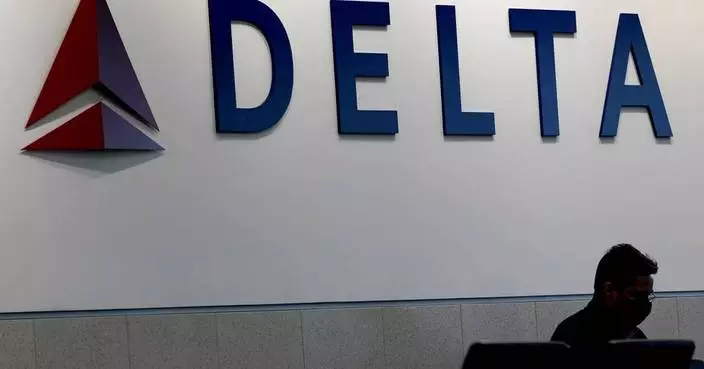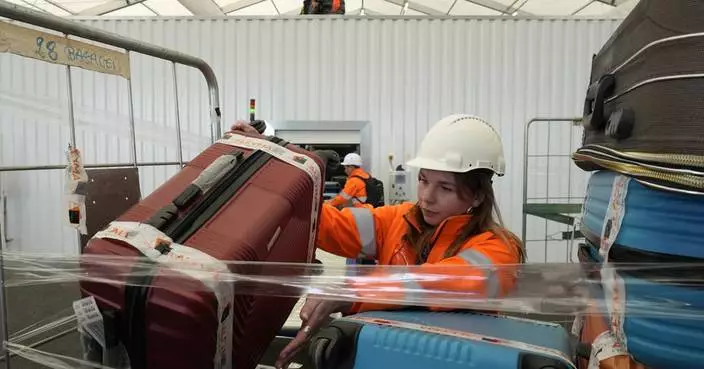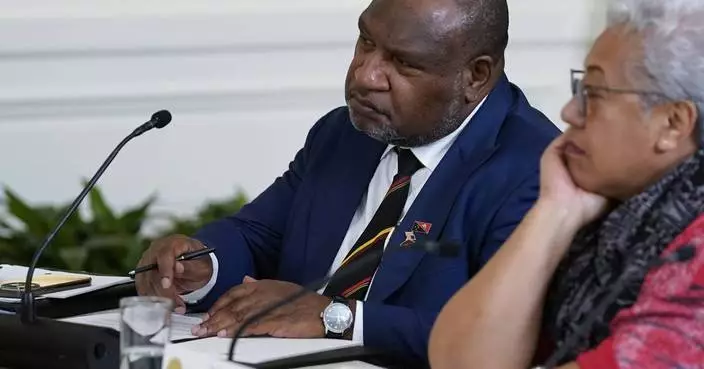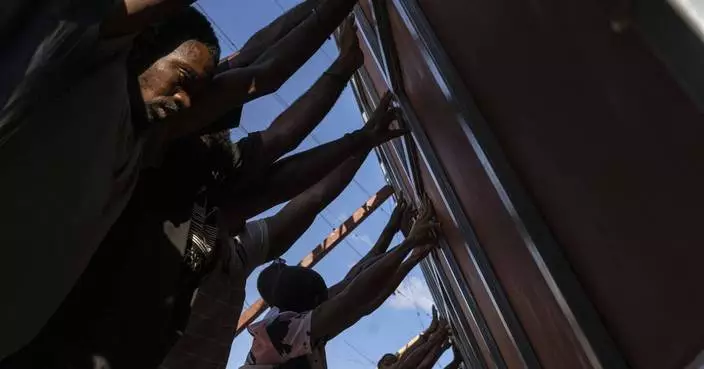A western woman hung herself on the steel structure cables at the six-floor level in Suvarnabhumi airport of Thailand, astonishing passengers.
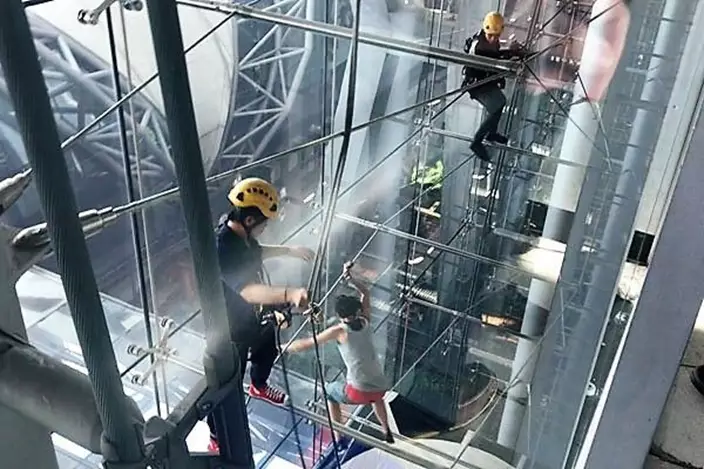
Photo by Sutthiwit Chayutworakan
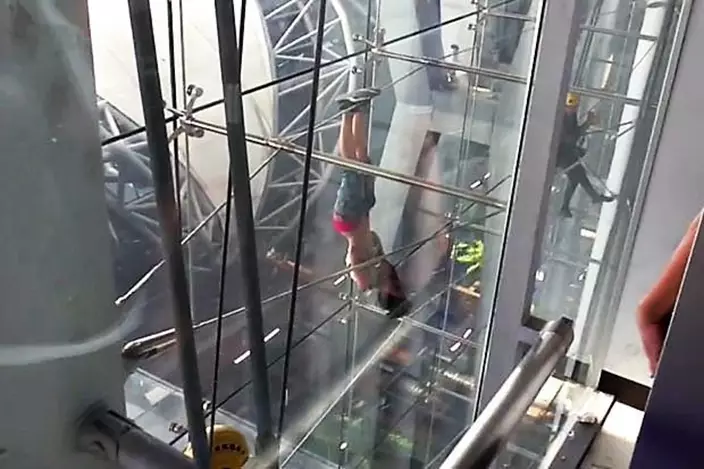
She kept changing positions from here to there, up and down and swirling around the steel pipes on the 20 meters place. Wearing a grey top and denim shorts, she tattooed herself with "2014 Olympics" on her back.
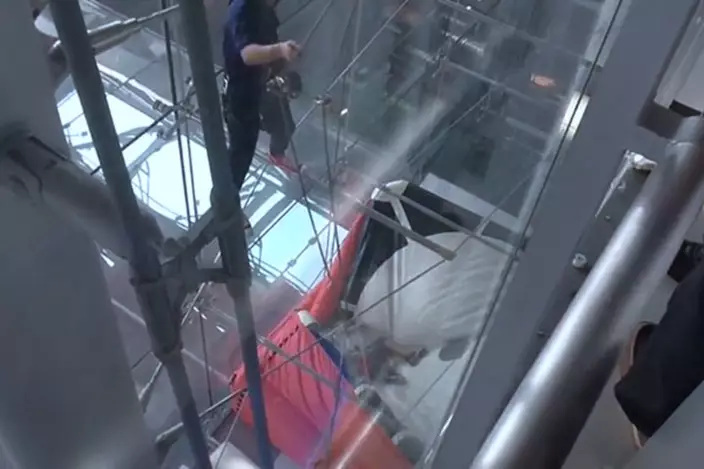
Photo by Sutthiwit Chayutworakan
Officials negotiate with her for nearly two hours but failed. However, she seemed to be tired at last and landed on airbags beneath her.
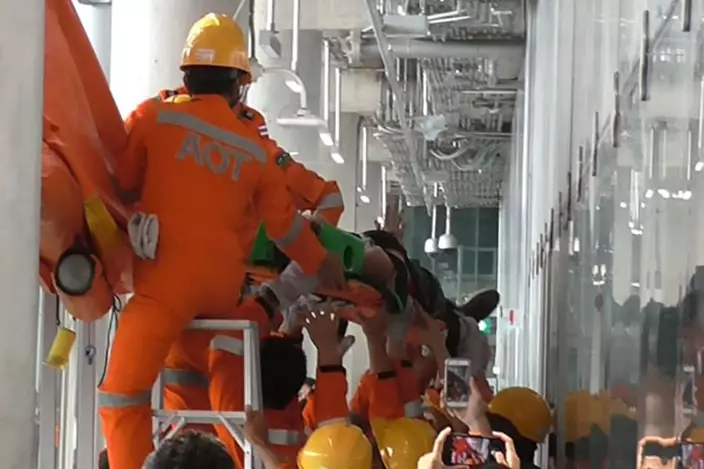
Photo by Sutthiwit Chayutworakan
Afterwards, she was taken to the police office but she spoke nothing. Officials cannot distinguish her nationality although she was in an European appearance.
WASHINGTON (AP) — A bipartisan group of senators is pushing for restrictions on the use of facial recognition technology by the Transportation Security Administration, saying they are concerned about travelers' privacy and civil liberties.
In a letter on Thursday, the group of 14 lawmakers called on Senate leaders to use the upcoming reauthorization of the Federal Aviation Administration as a vehicle to limit TSA's use of the technology so Congress can put in place some oversight.
"This technology poses significant threats to our privacy and civil liberties, and Congress should prohibit TSA’s development and deployment of facial recognition tools until rigorous congressional oversight occurs," the senators wrote.
The effort, led by Sens. Jeff Merkley, D-Ore., John Kennedy, R-La., and Roger Marshall, R-Kan., "would halt facial recognition technology at security checkpoints, which has proven to improve security effectiveness, efficiency, and the passenger experience,” TSA said in a statement.
The technology is currently in use at 84 airports around the country and is planned to expand in the coming years to the roughly 430 covered by TSA.
The FAA reauthorization is one of the last must-pass bills of this Congress. The agency regulates airlines and aircraft manufacturers and manages the nation’s airspace.
TSA, which is part of the Homeland Security Department, has been rolling out the facial recognition technology at select airports in a pilot project. Travelers put their driver’s license into a slot that reads the card or they place their passport photo against a card reader. Then they look at a camera on a screen about the size of an iPad that captures their image and compares it to their ID. The technology is checking to make sure that travelers at the airport match the ID they present and that the identification is real. A TSA officer signs off on the screening.
The agency says the system improves accuracy of identity verification without slowing passenger speeds at checkpoints.
Passengers can opt out, although David Pekoske, the TSA administrator, said last year that eventually biometrics would be required because they are more effective and efficient. He gave no timeline.
Critics have raised questions about how the data is collected, who has access to it, and what happens if there is a hack. Privacy advocates are concerned about possible bias in the algorithms and say it is not clear enough to passengers that they do not have to submit to facial recognition.
“It is clear that we are at a critical juncture," the senators wrote. “The scope of the government’s use of facial recognition on Americans will expand exponentially under TSA’s plans with little to no public discourse or congressional oversight.”
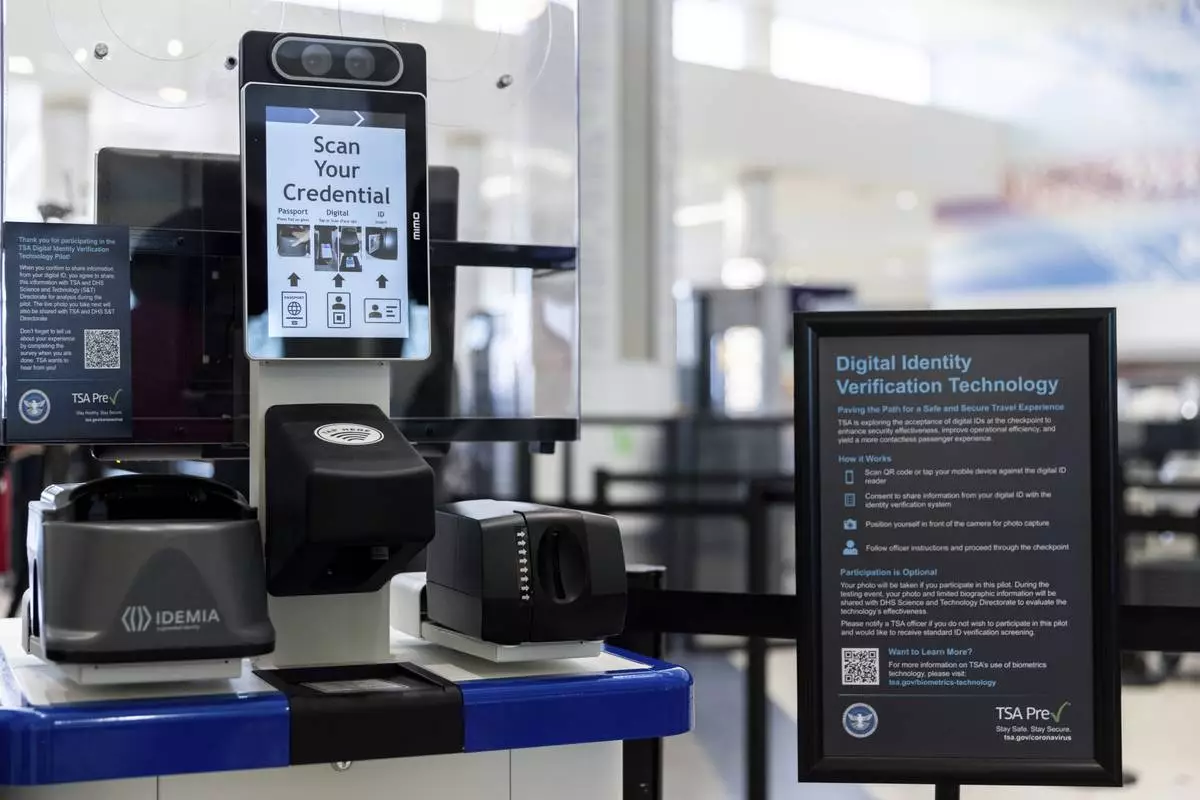
FILE - The Transportation Security Administration's new facial recognition technology is seen at a Baltimore-Washington International Thurgood Marshall Airport security checkpoint, April 26, 2023, in Glen Burnie, Md. A bipartisan group of senators wants restrictions on the use of facial recognition technology by the TSA, saying they're concerned about travelers' privacy and civil liberties.(AP Photo/Julia Nikhinson, File)










